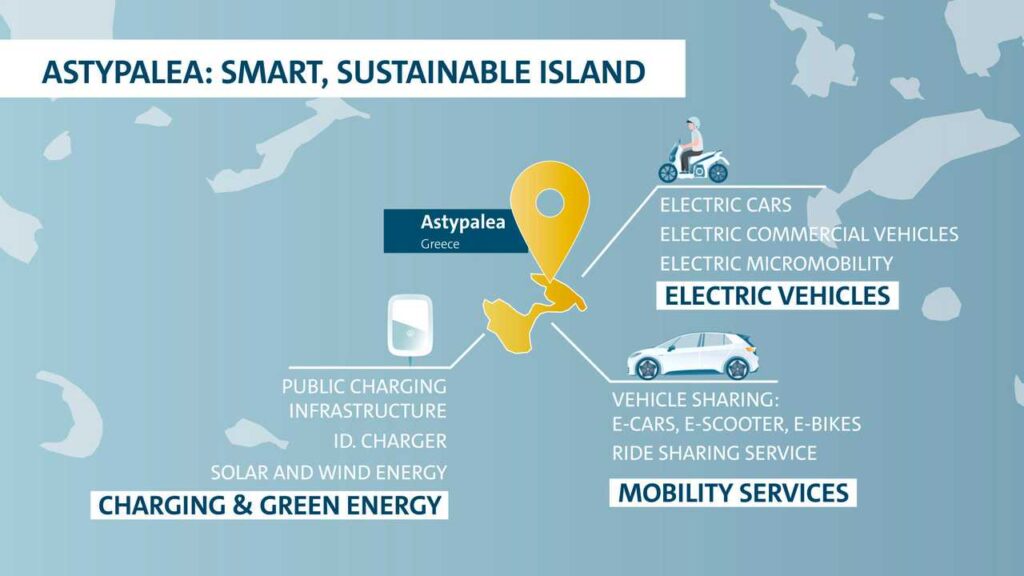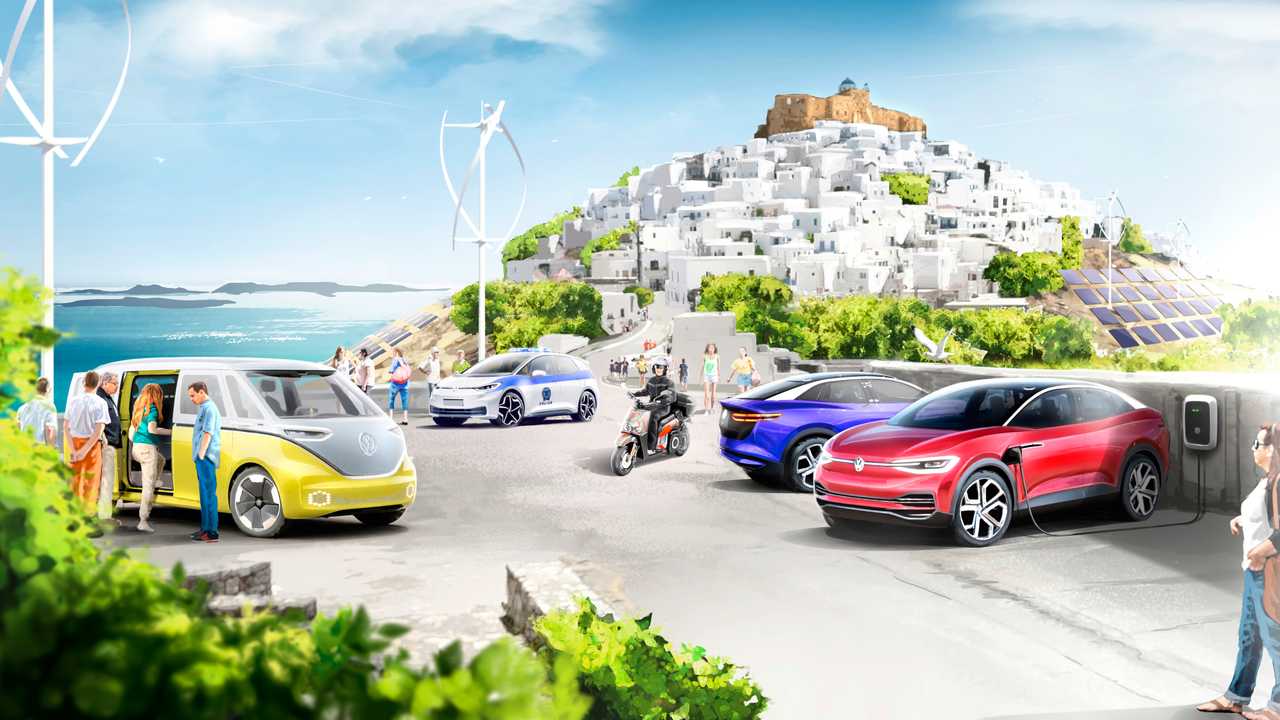Volkswagen Group and Greece signed a memorandum of understanding on Wednesday to establish a groundbreaking mobility system on the Mediterranean island of Astypalea.
The six-year plan includes a massive replacement of carbon-run vehicles on the island with electric and hybrid cars and trucks, the building of electric charging stations, and the construction of electric trains which will run on clean energy — all produced locally.
Greece has long relied on coal, but Greek Prime Minister, Kyriakos Mitsotakis, has pledged to steer the country away from fossil fuels and boost the use of renewable energy.

“I strongly believe in partnerships. Governments can’t deliver on their own and the private sector isn’t the answer to every question,” Mitsotakis said after the announcement was made.
“Volkswagen’s decision to come to Greece for the implementation of this project constitutes a vote of confidence in Greece’s growth prospects, but also the seriousness of this government and its ability to put into action a complex project.”
Astypalea, a popular tourist destination, currently has a very limited public transport service with just two buses and energy demand is almost entirely met by fossil fuel.
The project will see part of the island’s vehicle rental service transformed into a ride-sharing service offering electric cars and e-scooters. Commercial and public sector vehicles will also be switched to electric.

In total, the project will involve replacing about 1,500 combustion engine vehicles with around 1,000 electric ones. Volkswagen will install its Elli chargers across the island to provide about 230 private and several public charging points.
Financial terms of the deal were not disclosed.
“Our long-term goal is climate-neutral mobility for everyone,” Volkswagen CEO, Herbert Diess, said during the signing of the memorandum with Greece’s Deputy Foreign Minister, Konstantinos Fragogiannis.
“And with the Astypalea project we will explore how to realise that vision already today.”
